Student reflections on the WSPM course
Overview
Students come from a diverse set of cultures, backgrounds and ages reflecting the interdisciplinary nature of the course, and its relevance across the world. They leave with knowledge, understanding and transferable skills that propel them into successful water management and related careers.
Career launch-pad
The aim of the WSPM course is to train future decision makers, managers and policy makers in water policy and management. Past graduates have gone on to obtain positions in a range of water-related jobs. Examples include policy positions in government departments (e.g. Environment Canada, UK Department for Environment, Food and Rural Affairs (DEFRA); Chinese Ministry of Works), business/enterprise (e.g. Arup, ERM, Halcrow, Mott MacDonald, Public Utilities Board-Singapore, SMEC, Global Water Intelligence, etc.), non-governmental organisations (e.g. WaterWise, Children's Hunger Fund, CSE) and international agencies (e.g. World Bank, UNICEF, European Commission, IFAD, GTZ, USAID, etc.).
A number of students use the course as a gateway to start DPhil/PhD research, including Oxford, Princeton, Stanford and UC Berkeley.
Why WSPM?
Arjan Braamskamp - Commercial Officer, Government of the Netherlands in Ecuador
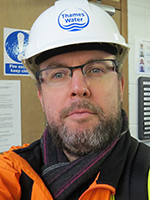
"Before starting the WSPM course, I had already been involved in various water-related projects, mostly focusing on flood prevention and climate-resilient adaptation in the face of natural disasters. For me, WSPM was a logical step in that it provided me with a space for critically evaluating the global state of water resources and climate change and considering the options available for a more sustainable, climate-resilient planet. I strongly believe that the intense year of 'inundating' myself in the various aspects of the global water challenge has shaped me into a more socially and environmentally responsible person, more ready than ever to be an advocate of positive change for future generations."
Cláudia Coleoni - Research Assistant, Stockholm Environment Institute – Latin America Centre

"I chose the WSPM programme to learn from international and contextualised examples of integrated approaches for water governance and the environment, particularly in the context of climate change and ecosystem services. The University of Oxford’s vibrant, intercultural and intellectual environment was also a defining factor in my choice.
"I have always had a clear mindset on bridging the environmental science and policy gap. The WSPM programme equipped me to continue bridging this gap with evidence-based governance frameworks, tools, critical thinking and a wide range of case studies."
Hannah Leckie - Water Policy Analyst, Organisation for Economic Cooperation and Development (OECD)
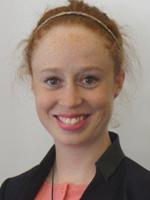
"Working as an Environmental Scientist - whether I was monitoring and reporting on groundwater depletion, eutrophication of rivers or biodiversity loss in coastal zones - I increasingly became aware of the importance of robust, evidence-based policy to protect freshwater ecosystems and reduce water-related risks. The WSPM course was the perfect combination of teachings to give me the skills, knowledge and networks to make the transition from science to policy."
Cliff Nyaga - Director, FundiFix (a social enterprise providing rural water maintenance services)
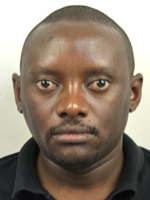
"The WSPM course provides an adaptive multi-disciplinary coursework and explores current global water issues/challenges and debate. Integration of classroom and field-based learning allows broader analysis of the interaction between science, policy, and practice. WSPM course lecturers are internationally renowned and experienced researchers on global water security. The course also provides opportunities to leverage wider Oxford University resources (projects, researchers and facilities). A diverse student group in my year, from different regions and disciplines, enriched coursework interactions and ensured mutual value addition."
Carys Pinches - Water Resources Specialist, Western Water Associates Ltd
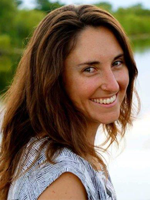
"The teaching staff on this course are passionate, insightful and inspiring. They always have time to share their knowledge and expertise with students. It makes such a difference when you are learning about case studies in class, and know that your professor has an intimate knowledge of the detail because of the role they played in shaping it! Gaining these perspectives and expertise is an invaluable part of the WSPM experience.
"Since completing my MSc I have worked in two very different water management-related roles. One, for an economic regulator and another for a consulting firm specialising in hydrogeology. The fact that this course interweaves themes spanning science, policy, regulation, law, and society so closely makes this possible. I’ve found this 'bigger picture' approach critical in making informed water management decisions across a variety of contexts."
Robin Rotman - Assistant Professor of Energy and Environmental Law and Policy, the University of Missouri
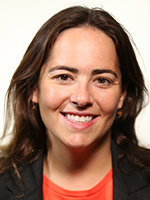
"Certainly, the course provided relevant content on topics such as geohydrology, water engineering, institutional governance and regulation, and water economics. But over time I have come to feel that the greatest benefit from the course is not (only) in the content, but rather in the relationships this course brought into being."
"My former WSPM classmates are now some of my most valuable professional contacts and closest personal friends."
Patricia Velasco - Regional Coordinator of the Climate Change, Water and Energy Programme, Fundación Futuro Latinoamericano

"When I made the decision to attend the WSPM program, I already had significant professional experience in the field of sustainable development, but I had always struggled with water governance challenges in Latin America and the Caribbean (LAC). Despite an abundance in water resources in LAC, the region also suffers from inequitable and unequal distribution. Upon learning more about WSPM, I quickly fell in love with the program and its potential for my personal growth. I really wanted to acquire the additional skills necessary to make a significant contribution to sustainable water management in my country and the region."
Xin Wei Wong - Senior Manager (International Relations and Capability Development), PUB (Singapore's National Water Agency)

"I chose this course as it was the only course that would expose me to the interdisciplinary water challenges faced by policymakers from around the world. While a key focus was on river basin management, it also offered a good balance of topics between urban and rural water challenges. We were also able to go deep into the nature of the socio-political issues that surround the challenges of water management. Through the MSc course, I was able to connect with many like-minded students and professionals from all over the world. Many of us have a strong desire to improve the state of water management in our own countries. While one year may seem like a short time, the friendships forged certainly last much longer and as for the memories shared – over a lifetime!"
How WSPM shaped my career
Kelly Bridges - Senior Associate, Global Water 2020

"WSPM allowed me to engage in the field of water resource management through a number of lenses both theoretically and practically. Coursework ranged from economics to public health to hydrology. The lessons I learned outside the classroom were equally valuable, including a class visit to Loughborough University’s hand pump park, stakeholder meetings along Spain’s Ebro River, and dissertation research in the Western Ghats of Tamil Nadu.
"I took these learnings from my time at Oxford to Washington, DC over 3,600 miles away, where I work with Global Water 2020. Global Water 2020 is an advocacy and facilitation initiative working to accelerate progress toward the most difficult interdisciplinary challenges in the global water security and sanitation space, from cholera to neglected tropical diseases to hydrodiplomacy. Of primary concern is the lack of safe WASH in healthcare facilities, impacting over 2 billion people worldwide. These problems will only be solved through partnerships and solutions across disciplines. WSPM has provided me with the requisite knowledge to begin addressing these issues toward a more water secure world."
Émilie Lagacé - Manager of Policy Development, Fisheries and Oceans Canada

"My dissertation topic in particular – the science behind the EU Water Framework Directive – led to a publication and an award from the Royal Geographical Society; a Water Policy Fellowship from a think tank through which I researched what Canada could learn from the EU experience; many speaking opportunities in conferences and lectures; and opened up several professional opportunities.
"I have worked on water issues since my graduation, mostly in the Canadian federal public service, but also in the private sector (Arup UK), and for a non-profit organisation (Waterlution) that aims to connect young water practitioners through learning workshops."
Rhett Larson - Associate Professor and Morrison Fellow in Water Law, Arizona State University
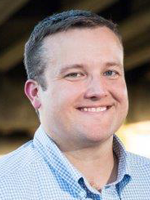
"The MSc course allowed me to expand beyond the law and connect my experience as a water lawyer to broader questions by providing the knowledge I needed to meaningfully engage with other water professionals and scholars across sectors and disciplines. It also provided me with the time, resources, and mentoring necessary to develop as a researcher and begin to produce publishable quality scholarship that allowed me to transition from practicing water lawyer to water law academic."
Fraser O'Halloran - Technical Officer - Water, CDP

"Following the MSc I worked as a Water Consultant at AECOM where I had the opportunity to apply my knowledge within a UK context through, for example, modelling flood risk and conducting water quality assessments for significant infrastructure projects. After over a year in this position, however, I concluded that this was not the career I wished to pursue. After a break, I undertook an internship within the Sustainable Finance team at WWF Singapore. The experience was eye-opening. I worked with banks and asset managers to improve the implementation of ESG factors within their lending and investment decisions. It enlightened me on how crucial a role financial institutions play in the achievement of the SDGs. I’d found my so-called 'career path'. My current position at CDP involves the analysis of the responses companies make to CDP’s Water Security Questionnaire, ultimately informing the investment decisions of financial institutions. Fittingly, this role brings together my newfound appreciation of responsible investing and the knowledge I gained throughout the MSc."
Ranu Sinha - Senior Water Resources Management Specialist, Global Water Partnership

"I started the course in 2014-15 as an MSc student with the initial plan to study at Oxford for a year to sharpen my scientific understanding of water resources management. Several years later, I am about to complete my doctoral thesis on water security and sustainable water use on Indian farms at SoGE. The MSc course exposed me for the first time to critical frameworks, methods, literature and a new way of analysis and thinking that completely changed the way I work on water resources issues today. The subjects, professors, field trips during the intensive 9-months of the course shaped the way I built my doctoral research project and also introduced me to my supervisors! I learned to ask different types of questions that deepened my understanding of the drivers and interlinkages that underlie many of the water challenges we see around the world today."
Abigail Tevera - WASH Officer, UNICEF Zimbabwe

"Before taking the WSPM course, I was a Water, Sanitation & Hygiene (WASH) specialist with a knowledge and skills gap in important aspects related to integrated water and environmental management services. Upon graduating from the WSPM course, I joined Oxfam Zimbabwe as a WASH Coordinator with high-level responsibility to strengthen Oxfam's humanitarian and development WASH role in Zimbabwe. Since April 2018, I am a WASH Officer with UNICEF Zimbabwe providing technical, operational and administrative assistance throughout the WASH programming process. I prepare, manage and implement tasks related to the development, implementation, monitoring and evaluation of the country programme WASH output results."
Michael Valli - Managing Director, Aquasitions Group
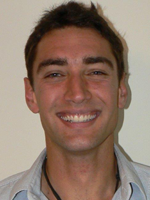
"Australia is a continent of extreme weather. The Millennium Drought – the worst in living memory – was devastating agricultural production and forcing metropolitan water restrictions as I prepared my application to Oxford University. WSPM helped me to understand water scarcity as a multidimensional problem and to learn about innovative solutions around the world. One case study, presented in one lecture for thirty minutes, became the pathway for my ten-year career since graduation."
Caitlin Werrell - CEO, The Council on Strategic Risks; and Co-Founder of The Center for Climate and Security
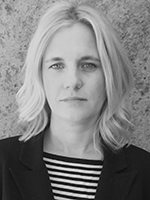
"I chose the course because I was interested in transboundary water resources as a factor in peace and conflict. When looking at what stresses could contribute to unrest over water, the destabilizing impacts of rapid climatic change kept coming up. This led me to the work I do now leading a non-profit think tank focused on the links between climate change and security (human, national and international security). I spend a lot of time conducting analysis and making the latest studies on climate, water and security policy relevant and digestible to policy-makers and the broader public. The holistic approach of the MSc WSPM was and is a crucial foundation for how I and my organisation approach these complex problems of managing and preparing for a world where water is at the forefront of the key peace and security issues of the day."
How I benefited from the WSPM dissertation
Heather Bond - An assessment of constructed wetlands for reducing nutrients in manure runoff within the Eastern Ontario beef industry
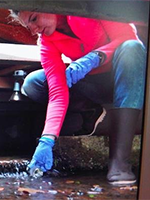
"I developed, researched and wrote my MSc dissertation, with the aim of investigating the potential for uptake of constructed wetlands to address nutrient run-off pollution. The research involved a two-pronged methodology: chemical analysis of water samples taken from beginning to end of a constructed wetland in eastern Ontario, and semi-formal interviews with beef farmers in the same area. The dissertation process was an independent project with support from department staff, allowing me to improve my project management skills, including idea generation, presentation, budgeting, problem solving, time management, and writing abilities. While my career path did not continue in Ontario or wetlands, those skills and experience were critical in later work I did as a project officer in government and international organisations (International Water Resources Association in Paris; and the UK Environment Agency)."
Ilana Cohen - Measuring Consumer Benefits from Mobile Water Payment Innovations
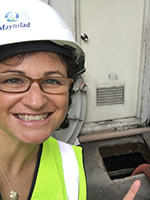
"My dissertation was an exciting, challenging and rewarding experience that formed the foundation of my career. With support from my supervisor and funding from the School of Geography, my research took me to Kiamumbi, Kenya – the epicentre of the mobile money revolution. The study demonstrated that mobile bill payments made it faster and cheaper for customers to pay their water bills, instead of travelling with cash, and therefore enabled the water utility collect the revenue needed to provide reliable services. To do this, I was privileged to work closely with staff from the local engineering firm that built and operated the network, as well as local enumerators to conduct 300 household surveys. The experience was incredibly valuable as it led to my career in Kenya at the GSMA, supporting energy, water and sanitation providers to leverage mobile technology."
Matt Coulson - Institutional design tensions and environmental transfer challenges for market-based water reallocation in unregulated rivers: a case study of the northern Murray-Darling Basin
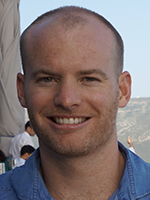
"My aim was to analyse the challenges of using market-based mechanisms to reallocate heterogeneous water rights in unregulated rivers with low and highly variable connectivity. In particular, I sought to provide a case study on the largely unstudied water management institutions in the northern Murray-Darling Basin. I employed mixed methods for my research, drawing on primary interviews and archival data. I interviewed policy practitioners, environmental water managers, farmers, environmental advocates, indigenous representatives, and community and political leaders.
"I now work at Australia's national weather, water and climate agency, the Bureau of Meteorology. I manage customer engagement for the Water Program and my job is to increase the value and impact the Bureau delivers to Australia's water sector. In this role I benefit directly from the experiences of my dissertation; I better understand the diverse water sector and the complicated regulatory framework governing water management in Australia. My theoretical studies at Oxford have also helped me to speak the language of multiple disciplines, which is vital when working daily with scientists, policy makers, economists and the public."
Sagar Dhakal - Water-Energy nexus in the Jordan River Basin: challenges and opportunities
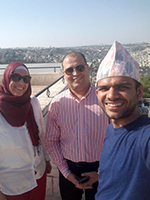
"The objective of my dissertation was to establish whether there were mutually beneficial arrangements for shared energy and water systems that were politically tractable and environmentally benign. I used qualitative (interviews) followed by quantitative (modelling) methods. It was difficult for me to get approval from the department as interviewing people from different competing priorities in a politically highly unstable region, Palestinian territories, involved some risks. This all paid off, however, as the trip was one of the most exciting, memorable and unique experiences I have had. Future MSc in WSPM researchers should think carefully about doing field work in difficult regions given the time limitations to complete the field work in just a few months. I am currently working in water-energy nexus projects at ICSHP, a China-based first international organisation, in Hangzhou."
Esteban Boj Garcia - Private water tankers in Morelia, Mexico: a focus on supply chains and business customers
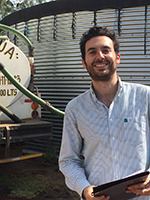
"The aim of my research was to carry out a market analysis of the private water tanker market in Morelia to examine the specific role of businesses customers in the market's performance. I received funding to carry out the field work in Mexico.
"The vast majority of the literature focuses on household consumption of tanker water, however, the extent to which business customers drive the performance of such markets is not well addressed in the literature, and this is the gap that the study attempts to fill. The study analysed the performance of the four most important supply chains of the market by looking at the depth and breadth of the trade within each of the supply chains and the competition among them. The greatest challenge was to achieve a representative sample of the traffic that would allow to draw some estimates of the amount of water traded and the distribution of gains among the different players, from the water source manager, to the tanker driver and the business customer. To carry out the research I used a mix of research methods including direct observation and semi-structured interviews that sought for quantitative and qualitative information to clearly understand the behaviour of the market and its structure. The study was done in the city of Morelia, Mexico. I chose this city because I was informed about the continuous presence of water tankers that supplied water to the city and because of the relatively manageable size of the city that would allow me to achieve a representative sample of the market in less than a month of field work.
"This experience was extremely valuable for me. I learned how to approach different actors, from tanker drivers to water utility managers, and to put a face to the problems in an urban water supply environment. I also got to know myself much better. I had to be organised and disciplined in order to collect the data in an orderly manner by following a pre-defined methodology. I always had to think ahead to set the next steps. Finally, the field work and the dissertation exercise proved to have a high impact in my career progression. I was able to communicate clear messages about water resource management issues to interviewers who appreciated this kind of experience and the entrepreneurial character of my research. This played an important role in getting my current position in Bolivia as Water Resource Management Advisor for the German Development Cooperation (GIZ)."
Nameerah Khan - Lived experiences of arsenic-related psychosocial distress in rural Bangladesh

"The aim of my study was to advance the understanding of the relationship between arsenic exposure from groundwater and psychosocial distress, by studying lived experiences within the context of southwestern Bangladesh. I undertook an exploratory qualitative study, where I conducted in-depth interviews with members of an affected community in a village in Satkhira district. Following this, I applied the hermeneutic-phenomenological approach in analysing the data. This was an incredibly valuable experience, wherein I not only gained substantial experience in researching an under-recognised field, but also in assessing my positionality as a researcher and broaching sensitive subjects.
"The dissertation was also the perfect bridge to the DPhil programme, which I commenced almost immediately after. My DPhil research is a thematic continuation of my MSc dissertation, and thus I am building upon the findings of the study and applying what I’ve learned from my experiences of study design, fieldwork and academic writing."
Clarke Knight - Distribution trends of invasive freshwater amphipods in Oxfordshire, Thames Basin, United Kingdom
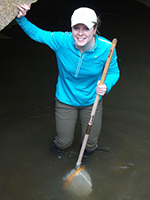
"The Thames catchment, UK, is one of the world’s most highly invaded freshwater ecosystems. For my dissertation research, I investigated the extent of non-native shrimp (amphipod) colonization in the Upper Thames catchment with the aim of providing actionable science for freshwater managers. The fieldwork component was a highlight of my Oxford experience and sparked my enthusiasm for outdoor research. At each sample site, I pulled on my waterproof boots and slipped into the river to capture shrimp with a net. That summer I visited nearly 100 different sites, and I caught and identified over 2,000 shrimp.
"My supervisor provided invaluable support as I developed a strategy for data collection, analysis, and interpretation. We published a peer-reviewed paper based on my thesis soon after I graduated. The experience of successfully conducting original research, collaborating with other scientists, and publishing my work gave me the confidence to pursue additional scholarship that can solve recalcitrant environmental problems. I am now in my fourth year of a fully-funded PhD at UC Berkeley."
Kieran Stanley - Physicochemical regime of Marley Fen, Oxfordshire, UK: impacts on plant growth and distribution
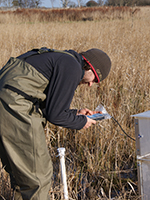
"For my dissertation, I was fortunate enough to conduct research in Marley Fen, a hillside calcareous fen located within the University’s long-term ecological laboratory, Wytham Woods. The aim of my dissertation was to establish the physicochemical regime of the site and elucidate the dominant water quality controls on plant growth and distribution within the fen. I spent a fun two months collecting water samples for macronutrient analysis, analysing samples in the laboratory and measuring plant growth using non-destructive methods during the early growing season.
"Working in Marley Fen was an excellent experience and allowed me to gain the necessary knowledge and skills to continue on to do a PhD in peatland biogeochemistry and subsequently on to two postdoctoral research positions in atmospheric chemistry. I am now based in Germany at the Goethe University in Frankfurt."
Shuchi Vora - Managing the Mara: towards a risk-based framework for water management in the Mara river, Kenya
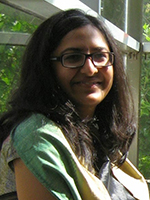
"My dissertation attempted to ascertain the relative impacts of climate change, natural variability of the hydrological regime, and anthropogenic interventions on the management of allocated environmental flows in the River Mara. I used decision scaling in a WEAP model for the Mara river catchment within Kenya. While my research was based on secondary data, I visited the Maasai Mara Reserve in Kenya to understand the complex interplay of natural and anthropogenic pressures as well as policy interventions on the ecohydrology of the river. I conducted my research with the help of WWF-Kenya, WWF-UK and IHE-Delft.
"From making these networks and continuing to remain in touch with them, to learning the critical importance of hydrological and climate uncertainties in decision-making, my research expanded my horizons in more ways than one. I now work for The Nature Conservancy in India, where there exist similar data scarcities, uncertainties and trade-offs in decision-making: and I fully appreciate these nuances after my Oxford experience."
Samantha Yates - Yes Butt, No But

"My aim was to go beyond traditional rainwater harvesting research, which focuses on technology adoption, to actual technology usage. I adapted the IT sector's 'Technology Acceptance Model' which explores usage efficiency, undertaking surveys in two Oxford suburbs chosen for their contrasting socio-economic status, and therefore control for variables e.g. ownership/size of garden, etc.
"This experience was valuable because it encouraged deep independent thinking during a busy year of structured teaching. I saw my hypotheses about the real world of water come to life, which was self-actualising and helped me understand what I could contribute to the sector throughout my career. My dissertation launched my career because the findings were designed to benefit utilities, local governments, and environmental NGOs - I now have a leadership role as Secretary General, Global Water Leaders Group, where I drive performance in utilities and governments."





